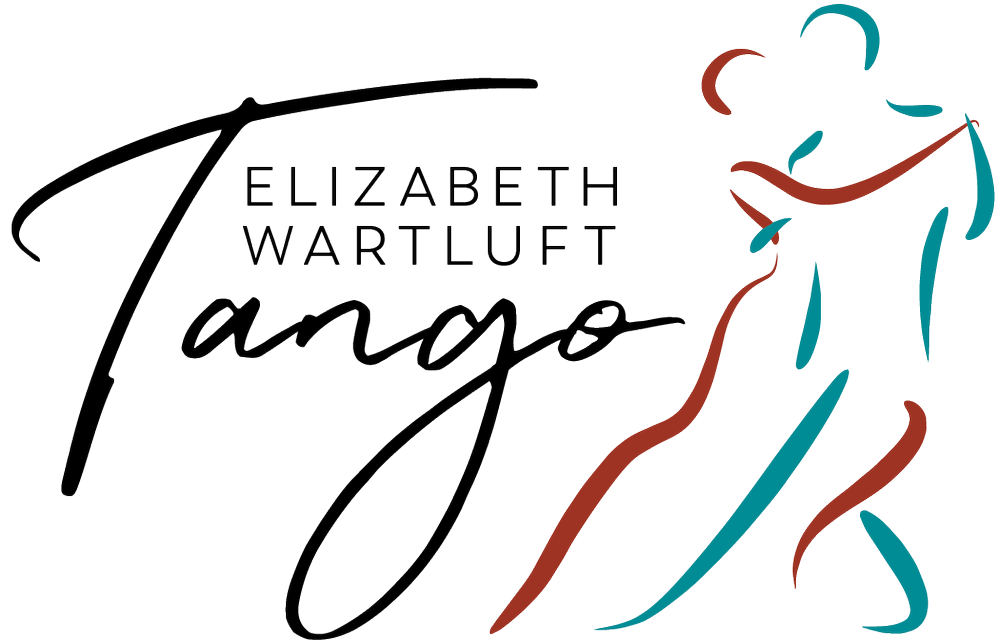This week, I made a joke about having a long-term marriage with tango, complete with ups, downs, dry spells, and long arguments. Then I started thinking about it: my relationship with tango has been very much like a marriage.
Tango and I started as an infatuation. In one short weekend, in December 1995, I fell in love at first sight. I started practicing three days a week with the one, and then two people in town who knew tango and were interested in getting better. I posted the "You know you are addicted to Argentine tango if..." checklist on my office door at the university, and set about solidying my habit.
As the infatuation turned into a new love affair, tango took precedence over many other parts of my life. I switched from a PhD program studying the Balkans, to a MA program in cultural anthropology, and wrote my thesis on Argentine tango. I started studying Spanish. I saved all my money and went to Argentina three years in a row (as a graduate student!), with the excuse that I needed to do research. If I hadn't switch my thesis focus to tango, I am pretty sure that I would have failed out of graduate school.
I started teaching tango because I was desperate to have tango partners to share my obsession. I initially taught tango as part of my advanced ballroom class at the University of Oregon in 1996. I came in and announced to my class, "I have started learning Argentine Tango. I don't know very much about it, but I will teach you all I know." I started hosting a weekly practica, as well as organizing workshops with traveling teachers. I convinced the dance department to start offering tango classes for credit. After all, this was my big love, and I wanted everyone to share it! The daily routine of married life, of schedules, going out on special dates, cultivating mutual friends, creating a shared history--this was what I was doing.
As with most newlyweds, I thought that my love for tango would stay at a fever pitch forever. I remember chatting with Jose Garafolo, one of my earliest teachers, and asking him why he didn't go out to the milongas in Buenos Aires. When he told me he had already been teaching for ten years, and after work, didn't feel like going out dancing, I thought he was crazy. I could not imagine feeling that way about tango. After all, I was in LOVE. How could one not want to dance as many hours a day as possible? How could teaching get in the way of dancing?
Like a long-term marriage, what is fabulous and exciting at the beginning, becomes more comfortable, more predictable over time. Now, after dancing tango for eighteen years, and teaching for seventeen years (I don't recommend this quick path to anyone, but back then, we were desperate for teachers), I understand Jose's point of view. When I have taught six or seven hours of tango in a day, I have to force myself to go to the milonga to dance. I still love dancing and I love seeing my friends of many years, but my love affair has become my job. I am married to tango.
And yet, there are those moments from time to time that are even more exciting than at the beginning, because now I understand the movement, the music, the lyrics, the cultural details--there are richer, more moving tandas, that I would not have appreciated when in my lovestruck mode. This is why I keep going back to Buenos Aires, going to the milongas in Portland, practicing drills and combinations at home, and teaching. I wouldn't give this up for the world. So even though I "cheat" on tango by dancing West Coast Swing or going to the salsa club, I am married for life to tango. 'Til death do us part, baby, 'til death do us part.
